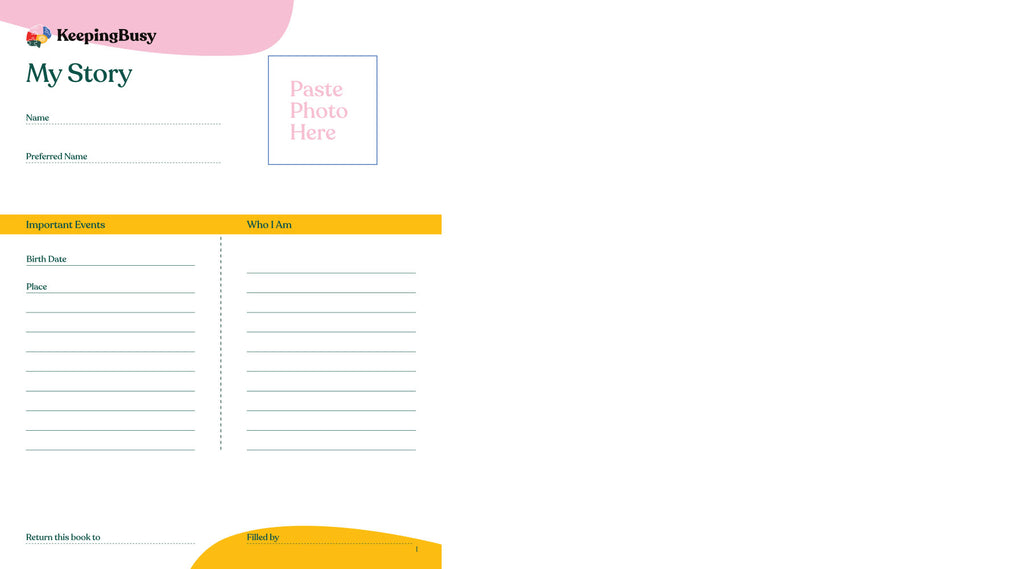
Imagine walking into a stranger’s home and trying to strike up a conversation with the person. Add to that the fact that the person has difficulty communicating. What do you talk about? How do you react when they say something that you aren’t familiar with? How do you think the person feels having a stranger in their house? These are the things that visitors and professional dementia caregivers face when arriving at a person with dementia’s home or room in a facility.
What if instead the dementia caregiver had some background information that told them that the person was a school teacher all their life and that they have three children named Bob, Sarah and Cathy? What if they also knew that before starting to teach they went on a three month journey across Europe and that trip was one of the most significant events in their life? Wouldn’t that make the conversation flow easier!?
Whether a person with Alzheimer's or dementia is at home or in a care facility, they need to interact with a variety of professional caregivers and visitors. The better those interactions are, the better the outcome. One way to help is to provide meaningful background information about the person’s life and what is important to them. Having this information available allows the caregiver to relate to the person and understand them better. It also helps the person with dementia be more comfortable with the caregiver and helps establish a rapport.
By making important information about the person’s life available the caregiver will give the person more respect because they know them more as a person - it helps them to see the person behind the dementia, rather than just a stranger with dementia. The more the caregiver knows about the person the more they understand their unique personality, resulting in the opportunity for better care. If, for example, the caregiver knows that the person had a favorite pet when they were young, or perhaps some memorabilia such as a signed sports card or hockey stick, they can prompt the person to talk about it. Even simple things such as knowing that although the person’s name is Jake, they like to be called “Skip” can make a big difference.
"MY STORY"
“My Story” is a carefully designed four page form that helps you capture the important information about a person’s life. The most important points are on the front and back covers for easy reference, with details provided on the inside pages.
Download it, print it and start collecting dementia care information.
Knowing the person’s likes and dislikes can also be important, both from a therapeutic and conversational perspective. If you know that the person loves word games, you can not only talk about how you love them too (or can’t do them very well), you can use that information when selecting activities to do with the person. If you know that they don’t like getting messy, then not only would an activity such as paper mache be out, you could also tell fun stories about messes that you’ve made or been involved in and encourage them to do the same.
Pulling all of this information together can be challenging. The information needs to be complete and accurate, yet concise. It needs to be in a format that highlights the most significant things while still filling in the details. The important point is to distill out those things that are still meaningful to the person and help define who they currently are. Things that will bring a smile to their face, remind them of a pleasant memory or draw out interesting conversation. It should only include things that are important to the person right now, and should be adjusted as that changes.




